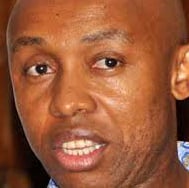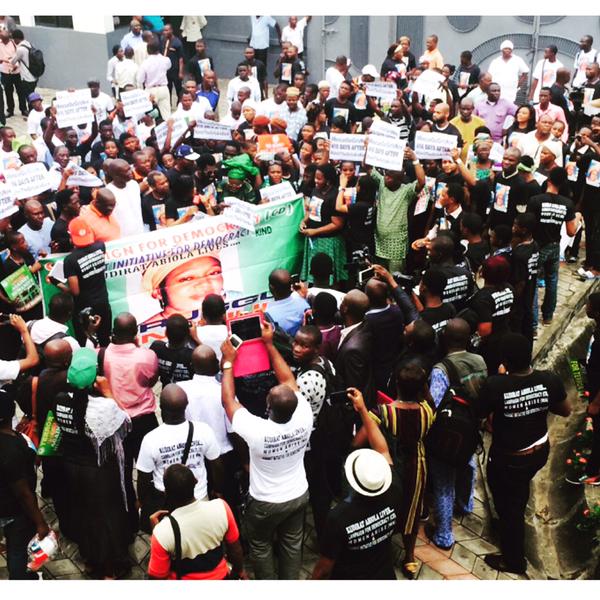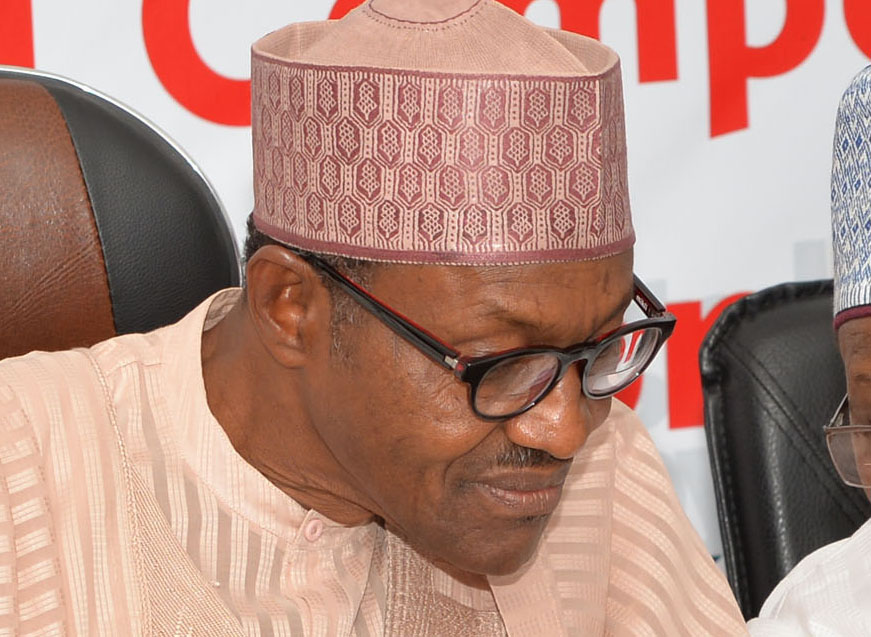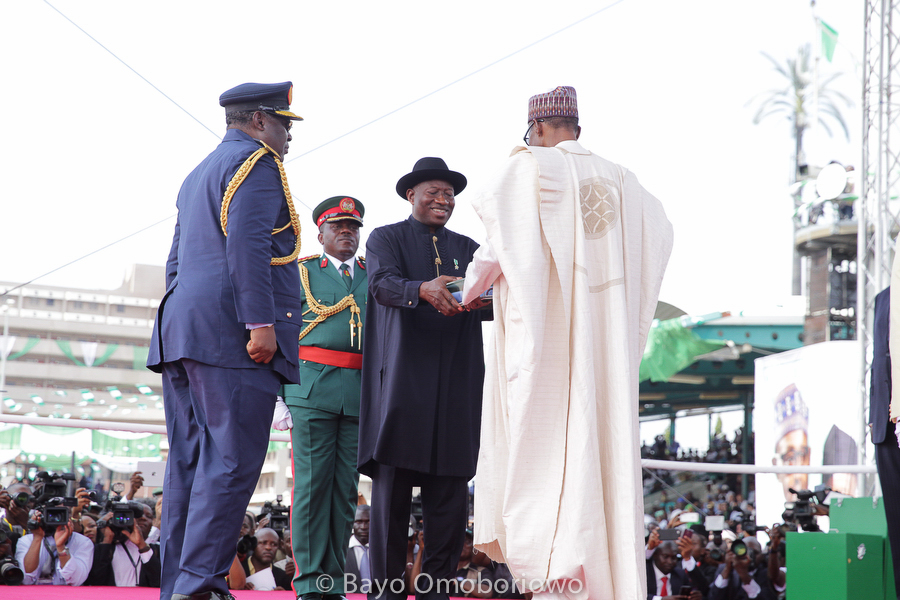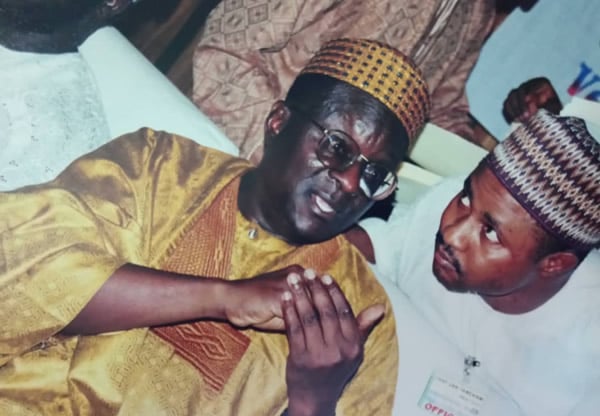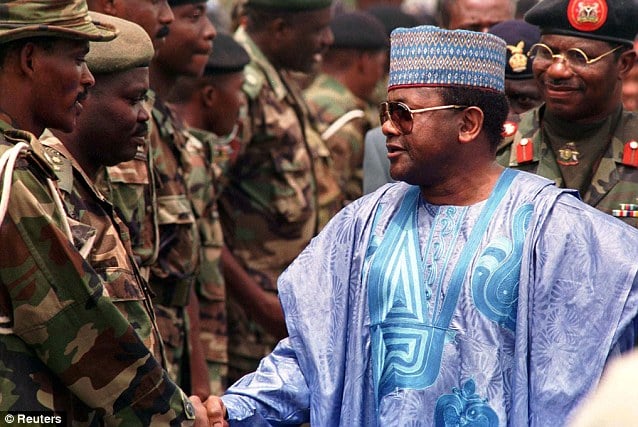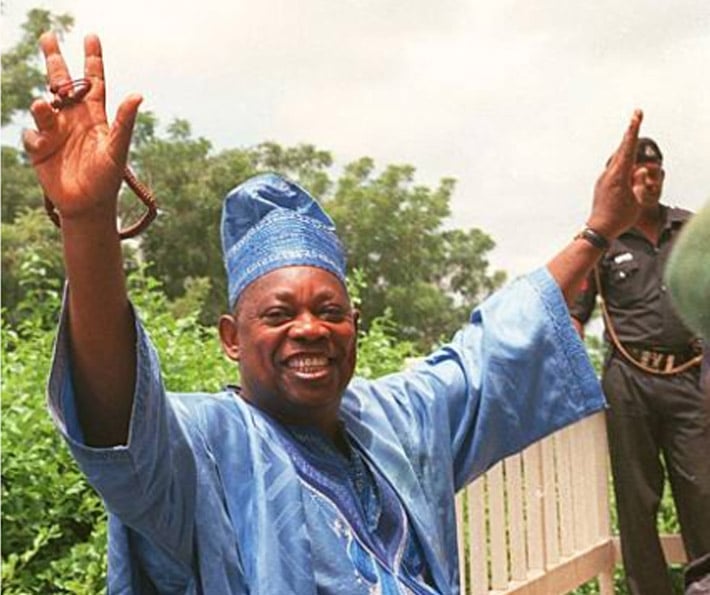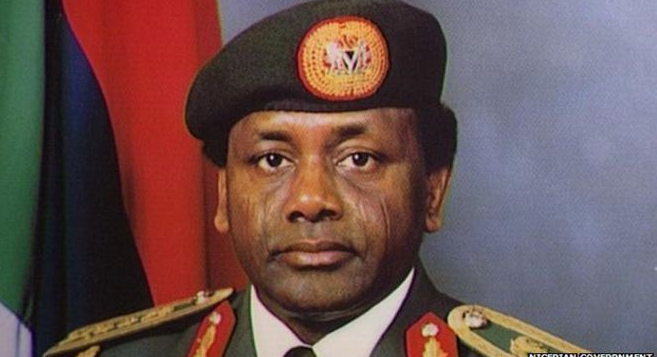Twenty-five years after the military nullified the outcome of Nigeria’s democratic elections of June 12, 1993, the country, today led by another soldier from the past, marches into the future with its gaze firmly fixed backwards. Now as then, the country needs a committed civic coalition to show up and reclaim a space increasingly constrained by a regime that shows casual disregard for both democracy and the citizens from whom it receives its mandate to rule.
The two candidates in the presidential ballot on 12 June 1993 were Alhaji Bashir Tofa of the National Republic Convention (NRC), and Alhaji Moshood Abiola of the Social Democratic Party (SDP). They were both Muslims. Today, unprecedented levels of sectarian poison would make such a ticket unthinkable. 10 days after the vote took place, the National Electoral Commission (NEC), was yet to officially declare the outcome.
On 22 June, 1993, the elite of country gathered in Katsina for the burial of Alhaji Musa Yar’Adua, the Mutawallin Katsina. A towering politician himself, the Mutawalli was the father of Shehu Musa Yar’Adua, a retired General who had collaborated with Ibrahim Babangida and Muhammadu Buhari (both Lieutenant-Colonels then), in the military coup that installed General Murtala Mohammed in power in July 1975. Shehu Yar’Adua would later become the second-in-command in that regime after the assassination in February 1976 of General Murtala, who was succeeded by General Olusegun Obasanjo. Nearly 31 years later, in May 2007, his younger brother, Umaru, was elected Nigeria’s president.
The funeral in June 1993 was a reunion of the military-civil coalition that had for decades plundered the country. In attendance was military president, Ibrahim Babangida, who had banned his mate, Shehu Yar’Adua, from the contest to succeed him. Also in attendance was the man who was to have succeeded him, Moshood Abiola. On taking his leave from the funeral, Babangida authorized a release to go out announcing the annulment of the election.
Advertisement
Nduka Irabor, then the spokesman of the Augustus Aikhomu, the Navy Admiral, who served as second-in-command to President Babangida, announced the nullification to a stunned country in a hand-written press release. It was evidence that the decision was casual, its implications hardly digested by soldiers drunk on power.
The regime believed, erroneously, that it had enough guns to shoot its way out of the mess it had chosen to create. Indeed, when the Campaign for Democracy (CD), called out the country to a civic resistance against this military usurpation of the popular will, the military chose to deploy its guns against the people, resulting in the martyrdom of an unknown number of citizens defending democracy. Less than six years after these crimes, in May 1999, the military would yielded to the will of the people as the legitimate basis for the mandate to govern.
In so doing, however, the soldiersmanufactured a tactical retreat in a self-imposed narrative of warfare against the popular will. In all the presidential elections since the return to civil rule in 1999, the leading candidates have been soldiers or created by soldiers. The country’s political space has become increasingly militarized, the civic space garrisoned and communities have become war zones in which dead casualties overwhelm the living.
Advertisement
In many ways, the methods have not changed. They have just got more cynical. Soldiers in starched fatigues did not pretend to be democrats. Soldiers in civilian clothes mostly deploy the legitimacy of civil process as artifice but with scant respect for democratic form or substance. Governance is reduced to warfare in which the organizing principle is loyalty to a man and not a country. Citizens are intimidated to line up as expendable assets.
Today, as twenty-five years ago, authoritarianism in Nigeria has many enablers, a majority of them civilians with subsistence or pecuniary pursuits of their own. The only end of this form of government and those who enable it is to retain power by any means. To achieve this purpose, they have taken steps to compromise the institutions that alone can make democracy work, including the police, political parties, and policy making. The civic space is constrained as only soldiers know how to do.
Around this silver jubilee, President Buhari has chosen to co-opt the passions around June 12, while cynically retrenching its vision of democracy.Symbolising the deliberate disintegration of Nigeria’s shared civic values that made June 12 possible, the Unity Fountain in Abuja is today under the occupation of a phalanx of Police Mobile Force, supported by canine unit and materiele arrayed against nobody except citizens driven by a desire for a country to call our own. A government elected with overwhelming public support is today afraid of its own citizens.
The fight against corruption, an essential undertaking for a country with Nigeria’s history, has been instrumentalised against perceived political opponents or dissidents. Government seems invested in toxifying coexistence and fragmenting civic initiative. Those who disagree with it are labeled with epithets that can put them beyond the pale of existence. Meanwhile, the killing of Nigerians unfolds on a scale that is both unprecedented and stunning in the President’s committed disregard of its occurrence.
Advertisement
Around this Silver Jubilee of June 12 1993 and the civic cascade that it triggered, therefore, the country seems to have come full circle somewhat. It remains in transition from a generation of soldiers committed to playing god and fairy god-father all at the same time.
Ultimately, the politicians who have enjoyed this democracy with little to show for it in terms of outcomes for the people, must be called upon or compelled, if necessary, to defend it. Now as in 1993, the inspiration for the political actors came from the resilience of civic actors, provided then by the Campaign for Democracy, CD. Nineteen years after the return to civil rule, such civic voices are once again needed to inspire another generation of political actors and citizens in joint enterprise. New digital capabilities may enhance their reach but this new civic coalition for democracy is urgently needed to help Nigeria complete the transition from militarized civil rule to a democracy.
Odinkalu, a lawyer, is joint-convenor of #NigeriaMourns
Advertisement
Views expressed by contributors are strictly personal and not of TheCable.
Add a comment
